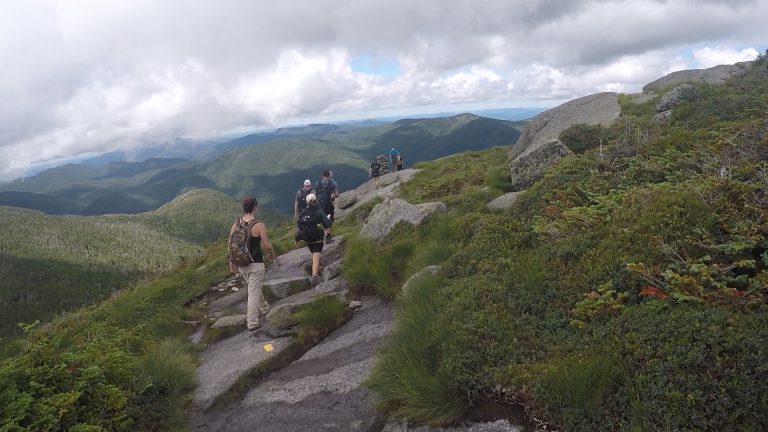
For many of us, choosing what to do with our lives can be a complicated process – especially when it comes to our career choice. We’ve been told many times to go with safe and reliable options instead of pursuing our passion – especially if your passion could be labelled ‘unusual’. But if your interest lies in the realm of the environment, you’re in luck! Because according to Prospects UK, more than 65 percent of environmental science graduates are in full-time employment in the UK six months after graduation – a trend that is being mirrored throughout the world.
The environmental sciences are rapidly developing into some of the world’s most popular subjects, and with good reason, too. As the world’s population increases, so will the demand for food and production which will inevitably put pressure on the environment. And with threats of global warming and climate change among the main issues we and future generations face, the need for qualified people in the field has doubled. As President Barack Obama very eloquently said, “What makes climate change difficult is that it is not an instantaneous catastrophic event. It’s a slow-moving issue that, on a day-to-day basis, people don’t experience and don’t see.”
![]()
Image courtesy of Shutterstock
Despite the fact that environmental studies are focused on the environment, there are a lot of job opportunities in different industries as demand for environmentalists swells. According to Enviro Education, there are plenty of job possibilities depending on what your focus is; for instance, you could venture into wetlands restoration, environmental education, politics, or laboratory work.
To all nature lovers out there who are passionate about making a difference and preserving the natural landscapes around the world, this could be your calling.
Read on to find out about the Environmental Studies programs in remarkable locations…
PAUL SMITH’S COLLEGE – USA
When it comes to hands-on education, no one does it better than Paul Smith’s College. Our students learn through experience, with programs and projects that combine proven career training with a meaningful exploration of self, society and the earth. And what better way to learn about the environment than on our 14,000-acre campus right in the heart of the world-famous ‘forever wild’ Adirondacks in upstate New York.
![]()
Image courtesy of Paul Smith’s College
This private four-year college accepts students throughout the year, offering degree programs in Forestry, Environmental Studies, and Fisheries and Wildlife Science, among many more. The college prides itself on creating student-oriented academic courses to ensure everyone has a chance to learn, analyse and ask questions. But Paul Smith’s is not your average college, employing teaching styles that blend traditional classroom learning, fieldwork, laboratory research, internships and on-the-job experience.
Aside from its great programmes, accredited by the Middle States Commission on Higher Education, there are many reasons why this school would be the perfect place to start your tertiary education. Not only do you get to live in the Adirondacks, you get to learn all about it and work with the school to protect and preserve the natural resources of the place. The United Nations has designated our region as part of an international biosphere reserve.
FACULTY OF SCIENCE, UNIVERSITY OF QUEENSLAND – AUSTRALIA
As one of Australia’s leading research and teaching institutions, the University of Queensland (UQ) strives for excellence through the creation, preservation, transfer and application of meaningful knowledge. UQ’s MA’s in Conservation Biology seek to provide a comprehensive education in Conservation Biology.
All programs, from Ecology and Management of Invasive Species, to Geographical Information Systems, to Rainforest Conservation and beyond, have been specially-designed to provide aspiring conservationists with a firm understanding of the world’s bio-diversity. Postgraduate Studies in Environmental Management at UQ seeks to introduce students to the multidisciplinary nature of environmental management, allowing them to earn a Graduate Certificate, Diploma, Master’s qualification in this reputed discipline.
![]()
Image courtesy of the University of Queensland
Graduates of these courses leave fully-equipped to deal with the application of scientific, economic, planning and business principles, while integrating environmental protection with human development. These tertiary qualifications combined with work experience produces managers who are able to address complex issues in a vast and ever-changing world.
SCHOOL OF ENVIRONMENT, NATURAL RESOURCES AND GEOGRAPHY, BANGOR UNIVERSITY – UK
With a proven track record in the research department and a top 15 ranking among UK universities for student satisfaction last year, it’s no wonder Bangor University is a favourite with environmental enthusiasts. It’s School of Environment, Natural Resources and Geography offers a wide range of programmes such as Forestry, Agroforestry, and Conservation.
But not all classes begin and end indoor as Bangor also provides a living laboratory for teaching and research in the form of the Snowdonia National Park. In addition to park trips, the school organises many UK and overseas filed courses including trips to Tenerife, the Netherlands, Spain and Germany which provides many opportunities to talk to professionals working in the sector. Now where did we put our hiking boots?
![]()
Image courtesy of Bangor University
SCHOOL OF AGRICULTURAL, EARTH & ENVIRONMENTAL SCIENCES (SAEES), UNIVERSITY OF KWAZULU-NATAL – SOUTH AFRICA
There aren’t many places that offer a variety of courses within a school but the University of Kwazulu-Natal is not your average university. With over 12 specialisations in the SAEES, there bound to be something for everyone.
Equipped with world-class teaching and research facilities that include laboratories on all three campuses, the university ensures students get to learn with the very best tools in the business. After all, the UKZN’s main goal is to ensure graduates leave well-prepared to take on the real world through practical training.
With over a 1,000 undergraduate students currently enrolled and more than 400 postgraduate students working on Masters, Doctoral and Postdoctoral research, it’s clear the SAEES is a popular choice with many.
FACULTY OF ENVIRONMENT, SOCIETY AND DESIGN, LINCOLN UNIVERSITY – NEW ZEALAND
A quick Google search and you’ll find New Zealand on almost every top 10 list of beautiful countries, and with such a unique and abundant landscape, it’s not difficult to see why. Its beautiful green lands, hilly tops and stunning forests make it the perfect place to begin your environmental journey.
![]()
Image courtesy of Lincoln University
Aside from its stunning location, Lincoln University has been ranked the students’ top university in the country for its outstanding teaching, work experience opportunities and learning support assessment. Despite having over 3,000 students from 60 different countries in attendance, the school ensures that there is a small student to faculty staff ration (12:1) to allow every student more opportunities to have one-on-one interactions and assistance.
FACULTY OF ENVIRONMENT, SIMON FRASER UNIVERSITY (SFU) – CANADA
It’s one thing to learn about the environment but another to put those skills you’ve learnt to good use. With Simon Fraser University, you’ll be able to do both with the introduction of the new academic program that has been created to address the important issues around global issues with the environment, sustainability and climate change.
As a graduate of SFU, you’ll be first in line to find solutions to these issues. The Faculty of Environment at SFU is the only one of its kind in Western Canada, but it offers unique programmes such as the SFU-Douglas Degree program, allowing you to study and experience both an intimate college environment and a larger university setting.
Feature image courtesy of Paul Smith’s College
Liked this? Then you’ll love these…
The universal rise of the environmental sector
Why Liverpool University is monitoring volcanoes around the world













